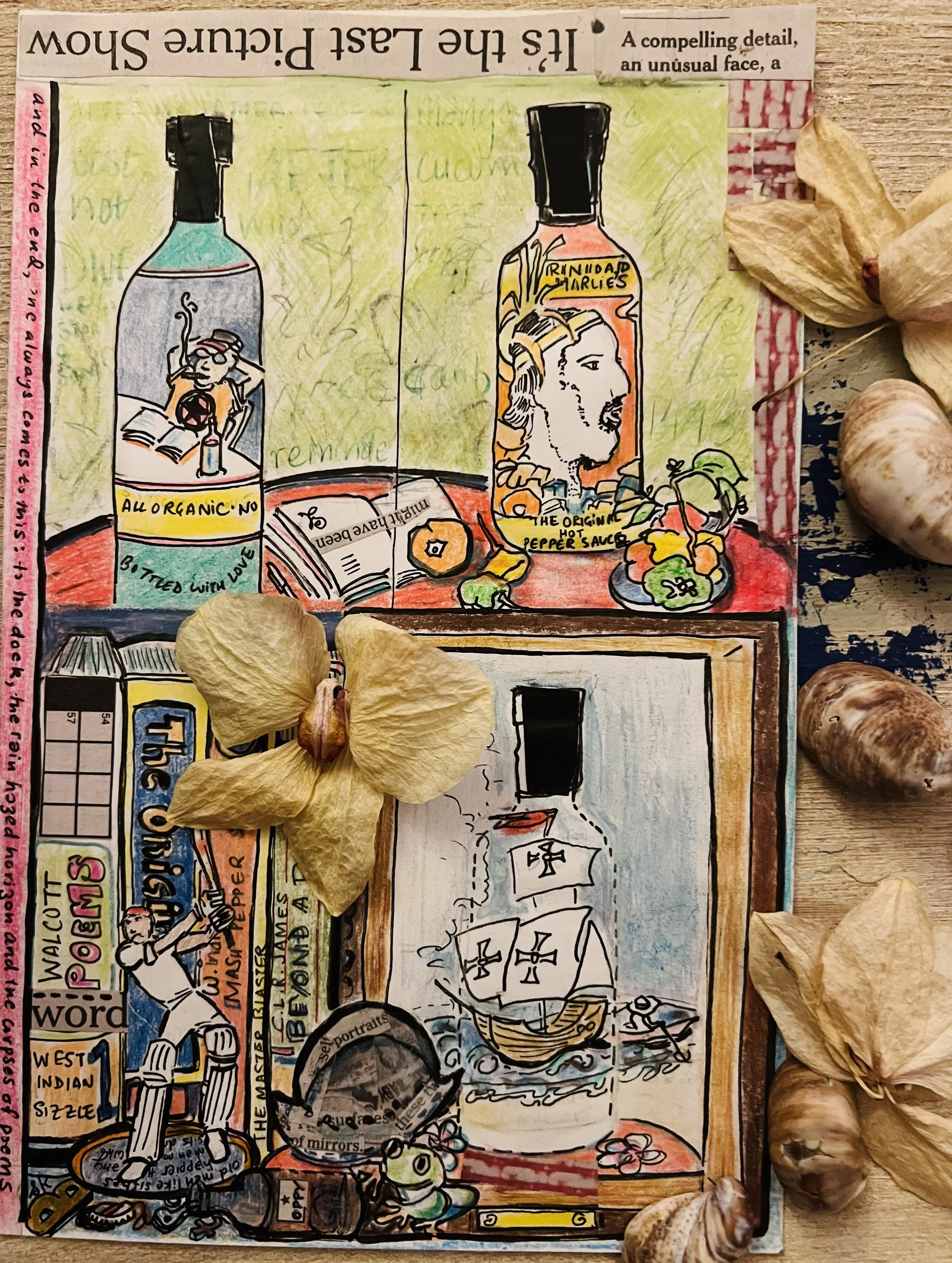“Now You Are Like That Dry Stone” and Other Poems
By Jessie Raymundo
-
Suicide
Asako Narahashi - Bentenjima (2001), from the series ‘half awake and half asleep in the water’
Image description: Under a vast, light-blue sky with low-hanging clouds stands a solitary Japanese torii gate. In the immediate foreground of the image, out-of-focus waves suggest a body of water.
This Morning
This morning is shaded
with saltwater. From the garden,
I watch you take your slippers off
& push your body into the sea.
After my mother took her last
breath, my father stood where
her name sounded like water
held in bare hands. He took his slippers
off, so as not to wake my brother.
Truth is: no one's ever ready to go.
The water that wraps your body
buries all sounds. Will you teach me
how to breathe underwater?
From the garden, then in the garden,
I plant a garden out of my mouth.
Asako Narahashi - Karatsu (2004), from the series ‘half awake and half asleep in the water’
Image description: The photograph captures a view that looks out from a vast body of water. Towards the right side of the image is a hill dotted with buildings and a temple-like structure. In the far distance is a hazy mountainscape.
Now You Are Like That Dry Stone
Now you are like that dry stone
in your hand textured to appear only
in moonlight. The opened door reveals no river,
you stand stunned. Outside, the shallow
snapping of sin speaks of that one night
in early October you tried to breathe underwater.
Within, the house is warm, the fish asleep. Still
the lure of heart murmuring like rain comes
strong. You seize your coat. You then too are gone.
Asako Narahashi - Yunohama (2004), from the series half awake and half asleep in the water
Image description: The photograph captures a view that is half-submerged under waves. The water has white flecks of light. In the background is a residential building. To its right are mountains.
What If I Told You Nothing
What if I told you nothing
would be different in a decade?
The moon will still be
the mouth of the night sky, our tiny eyes
reflecting a mouthful of light.
Black is only blue forgetting.
The dry stone in your hand is your heart.
Don't throw it into the river. You hear those
sluggish eddies? Let them remind you
that last night you failed to make the water
swallow you. Tonight you lip read the sky.
Nothing will be different. In a decade
nothing will be different.
Asako Narahashi - Suwako (2003), from the series ‘half awake and half asleep in the water’
Image description: Underneath a cloudy sky are rows of mountains and a line of built structures resembling ducks. The photograph is diagonally separated in half, with the bottom half obscured by a hazy, gray mass.
Jessie Raymundo is a poet from the Philippines. His poetry has appeared or is forthcoming in TAB: The Journal of Poetry and Poetics, Failbetter, South Dakota Review, North Dakota Quarterly, and elsewhere.
*
Asako Narahashi, based in Tokyo, began her career as a photographer in the late 1980s and held her first solo exhibition “Dawn in Spring” in 1989. Throughout the 1990s, she mainly produced black and white photographs, such as the series “NU-E.” Since 2001, she began working on the series “half awake and half sleep in the water,” which captures land seen from water with a unique perspective. These works, which reverse our usual perception of the boundary between sea and shore seen from the stable state of land, have attracted international attention. She continues to pursue water-scapes to this day, and has held numerous exhibitions both in Japan and overseas.







Three poems from Jerusalem speak to the power of vulnerability – shedding “camouflage” for skin. By Atar Hadari.